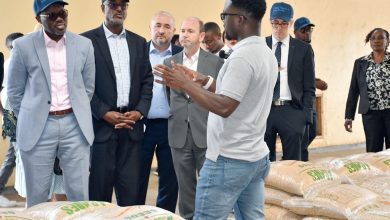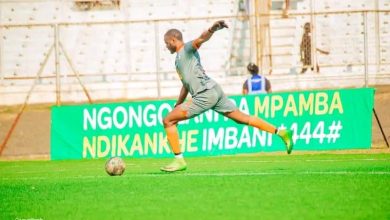Political parties unpack sports plans
Political parties have highlighted infrastructure development as their major focus in their sports plans ahead of the General Election on September 16.
Manifestoes of the governing Malawi Congress Party (MCP), Democratic Progressive Party (DPP), United Democratic Front (UDF), UTM Party and People’s Party (PP) all emphasise ensuring that the country has high standard sports facilities.

The UDF manifesto states that the party will bolster sports infrastructure as part of revenue generation while developing the sports industry through formulating a sports industry policy, developing the sports market and setting out general norms andstandards.
“We will conduct audits of sports facilities and use information from the audits to develop plans to assist under-resourced areas and develop sport infrastructure,” reads part of the manifesto.
“We will also establish a legal framework to govern the sports market, develop a coherent approach to seeking private sector financing for the sports sector and encourage more robust private sector engagement in the sports market”.
UDF further pledges to support competitive athletes so that they can become
sports ambassadors, develop a pipeline of sporting excellence and promote participation in recreational sport while uniting the nation.
“We will invest in sporting facilities, especially for people with disabilities, and develop an effective and integrated sports academy system that will develop a pipeline for sporting excellence through national corps of talent scouts, coordinated sports science and medical support. We will assist competitive athletes to enter professional sport careers.
“We will ensure participation of grassroots communities in sport rather than artificially manipulating composition of elite sporting teams,” it reads.
On the other hand, UTM intends to rehabilitate and build sports fields in every district because it believes sport is a national investment, not a mere school activity.
“Sport builds unity, discipline and opportunity but many youth lack access to fields, equipment or support,” the UTM blueprint states.
“[UTM] will make sports part of the school system, with proper coaching. We will also provide sports scholarships and training camps while promoting girls’ participation and community tournaments. We will as well train youth as coaches, referees and physical therapists”.
The party hopes to partner with local businesses to sponsor grassroots leagues and create a national youth sports development fund.
The UTM manifesto further states that the expectation from the sports plan is that the public should “have safe, accessible places to play while turning talent into opportunity and building health, friendships and careers through sport.”
The PP manifesto includes the upgrade of sports and recreational facilities in each district.
“We will seek to harness the country’s artistic, cultural and sports heritage to become an integral part of the development process,” it reads.
“We will also foster involvement of the private sector in the sponsorship of sports and train more teachers in physical education at primary and secondary levels.”
On its part, the former governing DPP, promises to establish a K12 billion Sports Development Fund from which each constituency will access K50 million every year.
The manifesto also includes revision of the Sports Policy to incentivise companies supporting sports development.
In its blueprint, the DPP further pledges to resume primary and secondary school sports programmes to nurture young talent, complete the Griffin Saenda Indoor Sports Complex and Malawi Aquatic Centre projects initiated by the Tonse administration.
The main opposition party also promises to establish youth centres in all districts, “equipped with sports and recreational facilities”.
DPP has also pledged to continue the development of district stadiums and complete international stadiums in Blantyre and Mzuzu, invest in sports academies to enhance talent identification and administration.
It also promises to introduce a dedicated national budget vote for football and netball.
On the other hand, in its manifesto, MCP promises to construct a 41 000 capacity stadium in Blantyre by 2027, retaining the name Kamuzu Stadium.
It also pledges a 30 000-capacity stadium in Mzuzu by 2028 and a sports complex as an integral part of transforming Chipoka into a secondary city.
But sports analyst Charles Nyirenda said it would be better to wait until after the election “because often election promises carry a lot of wishes, but realities on the ground say something else later”.





